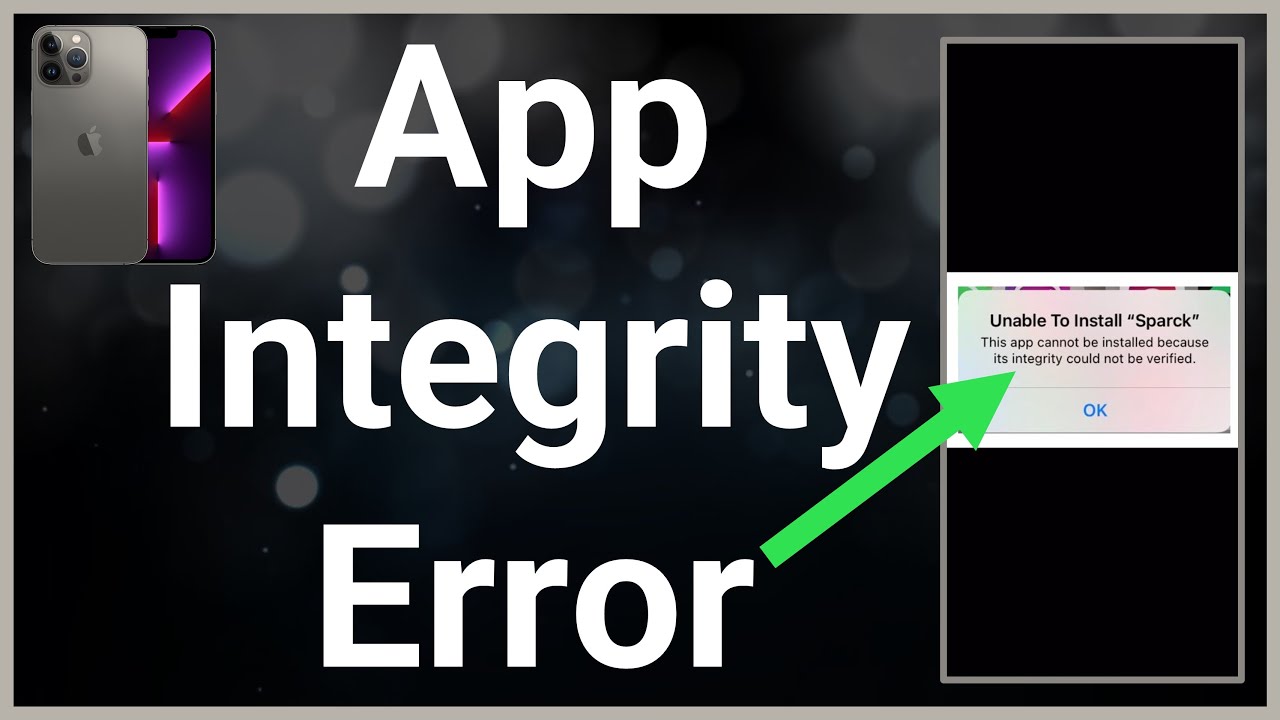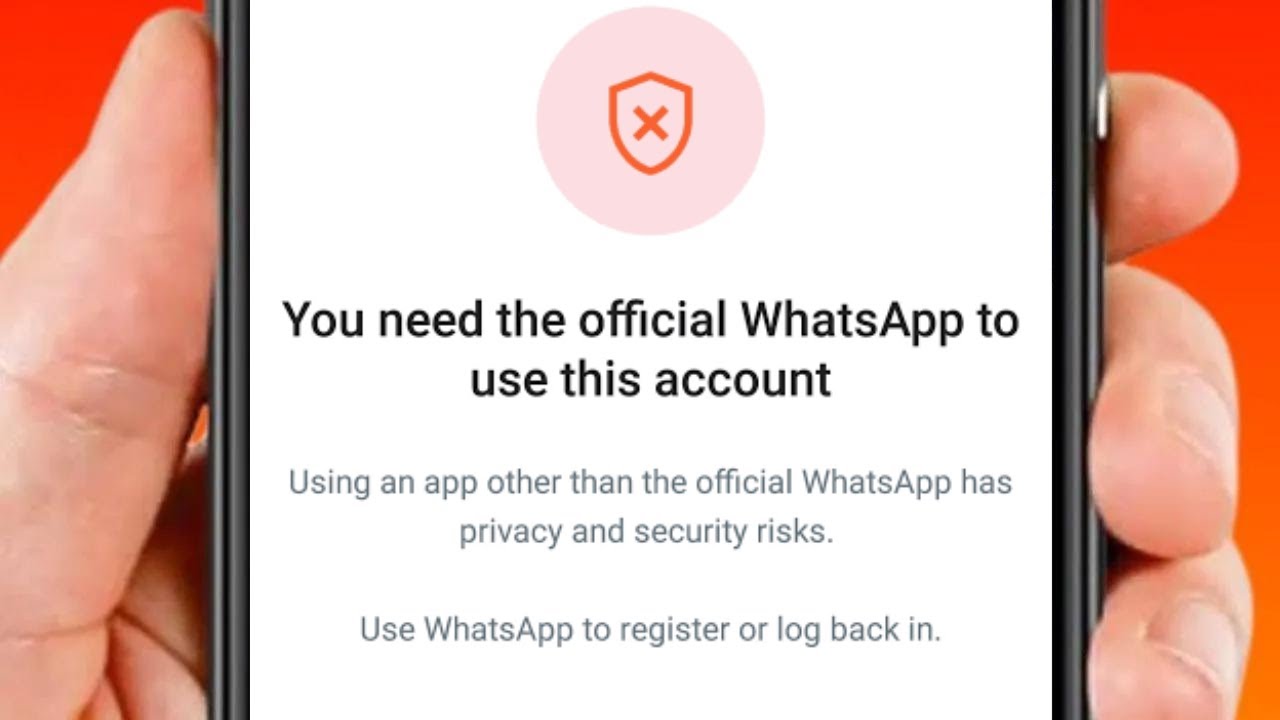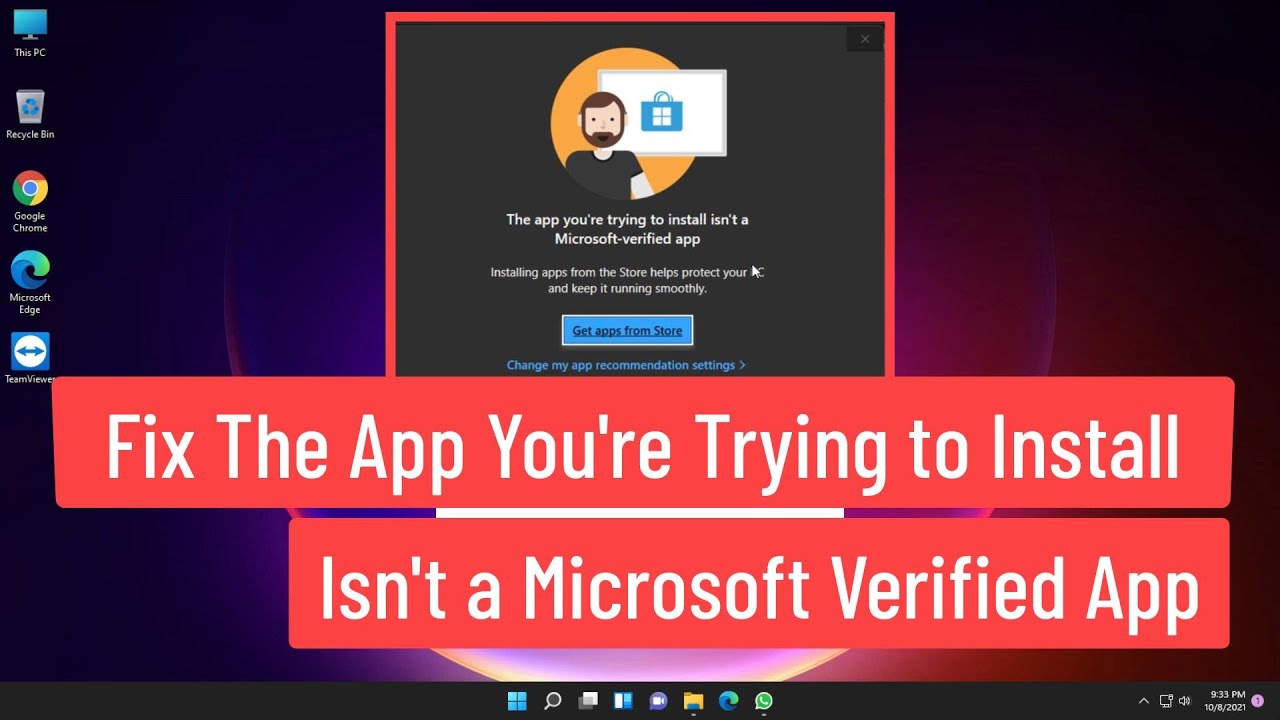An app is not verified on this iPhone—a warning that raises concerns about security, privacy, and performance. This article delves into the potential risks, privacy issues, and performance impacts of installing unverified apps on your iPhone. We’ll also provide troubleshooting steps and best practices to help you stay safe.
Unverified apps can bypass security measures, access sensitive information, and collect user data without consent. They may also consume excessive resources, drain battery life, and cause crashes or errors. It’s crucial to trust the source of an app before installing it and to be aware of the risks involved.
Security Implications
Installing an unverified app on an iPhone poses significant security risks, as these apps have not been reviewed or approved by Apple. They can bypass the App Store’s stringent security measures, potentially compromising your device’s integrity and exposing your sensitive information.
Unverified apps may contain malicious code or spyware that can access your personal data, including contacts, messages, photos, and even financial information. They can also exploit vulnerabilities in your device’s operating system, allowing attackers to gain remote access and control over your iPhone.
Data Theft
- Unverified apps can steal your personal data, such as contacts, messages, and photos, without your knowledge or consent.
- They can also access your financial information, such as credit card numbers and bank account details, putting you at risk of fraud and identity theft.
Malware and Spyware
- Unverified apps can install malware or spyware on your device, which can track your activities, record your conversations, and even control your camera and microphone.
- This information can be used for malicious purposes, such as blackmail or extortion.
System Vulnerabilities
- Unverified apps can exploit vulnerabilities in your device’s operating system, allowing attackers to gain remote access and control over your iPhone.
- This can give attackers the ability to steal your data, install malicious software, or even brick your device.
Privacy Concerns
Installing unverified apps poses significant privacy risks as they may collect and share user data without consent.
If you’re getting the “this app is not verified on this iPhone” message, don’t panic! It’s a common issue that can be fixed easily. One potential solution is to download an app called libby , which can help you verify the app in question.
Once you’ve verified the app, you should be able to use it without any problems.
Unverified apps often bypass the stringent security checks implemented by official app stores, making them vulnerable to malicious actors who may embed trackers or malware within the app.
Data Collection
- Unverified apps can access sensitive information such as location, contacts, messages, and browsing history.
- This data can be used to create detailed profiles of users, track their movements, and target them with personalized advertising.
Data Sharing
- Unverified apps may share collected data with third parties, including advertisers, data brokers, or even malicious actors.
- This can lead to identity theft, financial fraud, or other privacy violations.
Performance Impact
Unverified apps can pose a significant threat to your device’s performance. These apps often lack proper optimization and security measures, which can lead to excessive resource consumption and battery drain.
When an app is not verified on your iPhone, it can be frustrating. However, there are still plenty of great apps out there, such as an app for reading novels . This app lets you read your favorite books on the go, and it’s completely free.
So, if you’re looking for a great way to read novels on your iPhone, be sure to check out this app.
One major concern is memory usage. Unverified apps may allocate excessive amounts of memory, causing your device to slow down or freeze. This can be particularly problematic for devices with limited RAM, as it can significantly impact overall performance.
Battery Drain
Unverified apps can also contribute to battery drain by running unnecessary background processes or engaging in excessive data transfers. These activities consume power even when the app is not actively in use, leading to a reduction in battery life.
App Compatibility

Installing an unverified app on an iPhone can lead to various compatibility issues. These apps may not be optimized for specific iPhone models, resulting in crashes, errors, or subpar performance.
Yo, if you’re seeing “app not verified” on your iPhone, it might be because it’s not signed with a valid certificate. It’s like when you try to watch a movie on AMC and you get that “oops an error has occurred” message ( amc app oops an error has occurred ). Anyway, to fix the “app not verified” thing, try updating your iPhone’s software or reinstalling the app.
iPhone Model Compatibility
- Older iPhone Models:Unverified apps may not support older iPhone models due to hardware or software limitations. They may require specific features or capabilities not available on older devices.
- Newer iPhone Models:While newer iPhone models may support unverified apps, they may not be fully optimized for the latest features or technologies. This can lead to reduced performance or compatibility issues.
- Specific Device Models:Some unverified apps may be designed for specific iPhone models and may not work properly on other models. This can be due to differences in screen size, resolution, or hardware specifications.
App Updates and Support
Unverified apps are often not supported or updated by their developers. This means that they may not receive security patches or bug fixes, leaving users vulnerable to exploits and other security risks.
For example, in 2015, a vulnerability was discovered in an unverified app that allowed attackers to gain access to users’ personal information, including their passwords and credit card numbers. This vulnerability was not patched until several months after it was discovered, leaving users at risk for identity theft and financial fraud.
So, you’ve got this app on your iPhone that’s not verified, huh? That’s a bummer, dude. But hey, at least it’s not like your app defaults got reset on Windows 10, right? That would be a total pain in the neck.
Speaking of which, if you’re having trouble with app defaults on Windows 10, I found this article that might help: an app default was reset windows 10 . It’s got some pretty solid tips. But yeah, back to your iPhone app issue.
Hopefully you can get that sorted out soon.
Lack of Security Updates
- Unverified apps may not receive security patches, leaving users vulnerable to exploits.
- Security vulnerabilities can allow attackers to access users’ personal information, financial data, and other sensitive information.
- Unpatched vulnerabilities can lead to identity theft, financial fraud, and other serious security risks.
Lack of Bug Fixes, An app is not verified on this iphone
- Unverified apps may not receive bug fixes, which can lead to crashes, freezes, and other performance issues.
- Bugs can also introduce security vulnerabilities, making users more susceptible to attacks.
- Unfixed bugs can make apps unusable or unreliable, frustrating users and damaging the app’s reputation.
Trust and Reputation
Before installing an app, it’s crucial to trust the source. Unverified apps may lack credibility and have poor reviews, indicating potential issues.
Sorry to hear your app isn’t verified on your iPhone. It’s like trying to use a secret decoder ring but it’s not verified, ya know? Apps are like little databases, designed to store all sorts of info, like your contacts and messages . So, if an app isn’t verified, it’s like trying to use a decoder ring that’s all messed up.
You just can’t trust it.
App Reviews
- Check user reviews to gauge the app’s functionality, reliability, and user experience.
- Look for red flags such as negative feedback, unresolved bugs, or security concerns.
- Consider the number of reviews and their overall sentiment to determine the app’s reputation.
App Developer
- Research the app developer’s track record and reputation.
- Check if they have a website, social media presence, or contact information.
- Look for information about the developer’s previous apps and their user feedback.
App Store Alternatives
There are several alternative app stores available for iPhones, each with its own unique features and selection of apps. These include:
- Cydia:Cydia is a popular alternative app store that offers a wide variety of jailbroken apps and tweaks. However, it is only available for jailbroken iPhones.
- AppCake:AppCake is another popular alternative app store that offers a large selection of both free and paid apps. It is not available on the App Store, but it can be installed using a third-party installer.
- TweakBox:TweakBox is a relatively new alternative app store that offers a variety of jailbroken apps and tweaks. It is also not available on the App Store, but it can be installed using a third-party installer.
There are both pros and cons to installing apps from third-party sources. On the one hand, these app stores offer a wider selection of apps than the App Store. On the other hand, these apps are not subject to the same level of scrutiny as apps on the App Store, so there is a greater risk of installing malware or other malicious software.It
Yo, check it, if you’re trippin’ ’cause an app ain’t verified on your iPhone, don’t sweat it. You can always head over to add an app to facebook and hook it up. That’ll fix it for sure. And remember, if you ever run into more iPhone drama, just hit us up!
is important to weigh the pros and cons carefully before installing apps from third-party sources. If you are not comfortable with the risks, it is best to stick to the App Store.
Apple’s Verification Process

Apple has a rigorous verification process for apps in the App Store. This process helps to ensure that apps are safe, reliable, and meet Apple’s quality standards.
To be verified, apps must meet the following criteria:
- They must be developed by a registered Apple developer.
- They must be free of malware, viruses, and other malicious code.
- They must not violate Apple’s App Store guidelines.
- They must be of high quality and provide a good user experience.
Additional Information
Apple’s verification process is an important part of the App Store ecosystem. It helps to protect users from malicious apps and ensures that they can find high-quality apps that meet their needs.
Troubleshooting Unverified Apps
If you’ve already installed an unverified app on your iPhone, don’t panic. Here are some steps you can take to troubleshoot the issue and mitigate potential risks:
First, try to identify the source of the app. If you downloaded it from a third-party app store or website, it’s likely that the app has not been verified by Apple and may pose a security risk. In this case, it’s best to remove the app immediately.
Removing the App
- Go to your iPhone’s Settings app.
- Tap on “General”.
- Tap on “Profiles & Device Management”.
- Find the profile for the unverified app and tap on it.
- Tap on “Remove Profile”.
Once you’ve removed the app, you can restart your iPhone to complete the process.
Oh no! You’ve got an app that’s not verified on your iPhone. Don’t sweat it, it’s just an application that can be downloaded like any other . So you can chill and get back to scrolling your Insta feed or whatever you do on your phone.
Mitigating Potential Risks
If you’re not able to remove the unverified app, there are some steps you can take to mitigate potential risks:
- Disable the app’s access to sensitive data, such as your location, contacts, and camera.
- Monitor your iPhone for any unusual activity, such as unexpected data usage or battery drain.
- Keep your iPhone’s software up to date, as Apple regularly releases security updates that can patch vulnerabilities exploited by unverified apps.
Best Practices for Safe App Installation

Ensuring the safety and authenticity of apps installed on your iPhone is crucial for protecting your device and personal data. Here are some best practices to follow:
Always download apps from the official Apple App Store. The App Store has strict security measures in place to verify and review apps before they are made available to users.
Verifying App Authenticity
- Check the app’s developer name. Legitimate apps usually come from well-known developers with a good reputation.
- Read user reviews. Reviews can provide valuable insights into the app’s functionality, reliability, and potential security concerns.
- Look for official verification badges. Some apps may have badges from organizations like Norton or McAfee, indicating that they have been scanned for malware and security risks.
Avoiding Unverified Sources
- Never download apps from third-party app stores or websites. These sources may not have the same security measures as the App Store, increasing the risk of downloading malicious apps.
- Be cautious of apps that ask for excessive permissions. Legitimate apps typically only request permissions that are necessary for their functionality.
- Use a reputable antivirus or malware scanner to regularly check your iPhone for any potential threats.
Epilogue
While alternative app stores exist, it’s important to weigh the pros and cons of installing apps from third-party sources. Apple’s verification process ensures that apps meet certain criteria and guidelines, providing users with peace of mind. If you’ve already installed an unverified app, follow our troubleshooting steps to mitigate potential risks.
FAQ Explained: An App Is Not Verified On This Iphone
What are the risks of installing an unverified app on my iPhone?
Unverified apps can bypass security measures, access sensitive information, collect user data without consent, consume excessive resources, drain battery life, and cause crashes or errors.
How can I tell if an app is verified?
Verified apps will have a blue checkmark next to their name in the App Store. You can also check the app’s developer website or read reviews from other users.
What should I do if I’ve already installed an unverified app?
If you’re concerned about an unverified app, you should remove it from your iPhone. You can do this by going to Settings > General > iPhone Storage and selecting the app you want to remove.